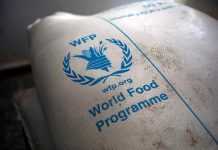Africa-Press – Mozambique. Mozambique’s Net International Reserves (NIR), which are needed for imports of goods and services, grew slightly in September, to more than $3.087 billion (€2.917 billion), due to provisioning in banks, according to official figures.
According to a statistical report from the Bank of Mozambique, to which Lusa had access on Friday, these reserves – in foreign currency – totalled almost $3.081 billion (€2.911 billion) at the beginning of the month, and the growth was driven by the “provisioning of banks”, obliged to build up reserves, which grew by $246.7 million (€233 million) in the space of a month.
In addition, these figures – which total an absolute increase of $6.3 million (€5.9 million) in reserves compared to the end of August – include a further $15.2 million (€14.4 million) for projects in the country and $24.1 million (€22.8 million) in miscellaneous purchases of foreign currency.
Among the $237.7 million (€225.4 million) of outflows from reserves in September, more than $100 million (€94.8 million) came from transfers made by banks and $96 million (€91 million) related to servicing Mozambican debt, among others.
Mozambique ended September with enough reserves to cover 3.2 months of expected import needs for this year, which rises to 3.9 months “excluding major projects”, according to the Bank of Mozambique.
Last January, the Bank of Mozambique increased the ratio of mandatory reserves to foreign demand deposits from 11.5% to 28%, and in April, it reduced the supply of fuel to importers from 100% to 60%.
In the 2023 budget, the Mozambican government set itself the goal of building up Net International Reserves of $2,936 billion (€2.686 billion), “corresponding to three months’ coverage of imports of non-factorial goods and services”.
Mozambique’s international reserves have been falling since 2021, the International Monetary Fund (IMF) announced in July.
“Gross international reserves cover almost 4.3 months of imports [end-2022], which is above the commonly recommended minimum buffer” of “at least three months,” says an IMF report on the final approval of the review of the Extended Credit Facility (ECF) for Mozambique.
The report adds that Mozambique’s international reserves have been “falling since the beginning of 2021” and reached $2.9 billion (€2.580 billion) at the end of last year.
The IMF recognises the impact of the “high costs” of fuel imports on Mozambique’s international reserves, given the supply of foreign currency to the main fuel importers.
“At the same time, imports not related to megaprojects have increased significantly in the last two years, further reducing the import coverage of reserves,” the document notes.
For More News And Analysis About Mozambique Follow Africa-Press






